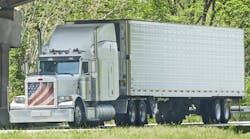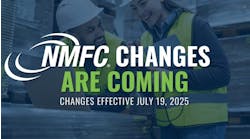October in an even-numbered year—and it's election season. This year, we have state elections and national midterms with a presidential election looming in 2024. Newspapers, websites, and TV talk shows are filled with pundits and polls. Who is up and who is down, what about trend lines and turnout, what issues are foremost on voters’ minds?
As a fleet manager, you likely have an opinion of which candidate or party would best serve your business and the trucking industry. You should educate yourself and act accordingly at the polls come November. That is how our representative government works in the U.S.
See also: 'How did that carrier ever get on the road?'
November may change some of our elected officials. Party control may shift here or there. One thing the elections won’t change, though, is safety. While we in trucking focus intently on the details of government regulations, in the broad picture, those regulations have remained remarkably consistent over time regardless of the party in power.
However, maintaining safety on our roadways remains a priority for both parties. The list of basics for both sides of the aisle includes: proper maintenance, safe driving practices, driver qualification, drug testing, and current credentials.
Once in a great while, we see a “sea change” in government regulation of highway safety. The last such change came with the abolishment of the Interstate Commerce Commission (ICC) and the demise of economic regulation in the 1980s and 1990s. On the other hand, many of the old ICC programs have parallels under the Federal Motor Carrier Safety Administration because the basics of highway safety have not changed.
Today, what is changing is technology. The instrumentation, monitoring, and reporting of highway safety is evolving rapidly. That is why you, your drivers, and fellow employees must remain actively engaged in proposed federal regulations. Regulatory proposals can influence how much regulation and government involvement exist in everyday trucking operations. You and your trucking colleagues are best positioned to evaluate the practicality and potential intrusiveness of new safety technology and regulations. When regulatory agencies announce proposed rulemakings, it’s your responsibility to make your voice heard through the public comment process.
Both sides of the aisle have embraced proper maintenance, safe driving practices, driver qualification, drug testing, and current credentials and have created regulatory stability over the years. When properly applied, they also have improved highway safety. Compliance is your responsibility as well!
You and your trucking colleagues are best positioned to evaluate what candidates and parties understand about the basics of highway safety. Put that evaluation to good use this November.
Steve Vaughn is vice president of field operations at PrePass Safety Alliance, the provider of PrePass weigh station bypass and electronic toll-payment and management services. Vaughn served nearly three decades with the California Highway Patrol and is a past president of the Commercial Vehicle Safety Alliance.



